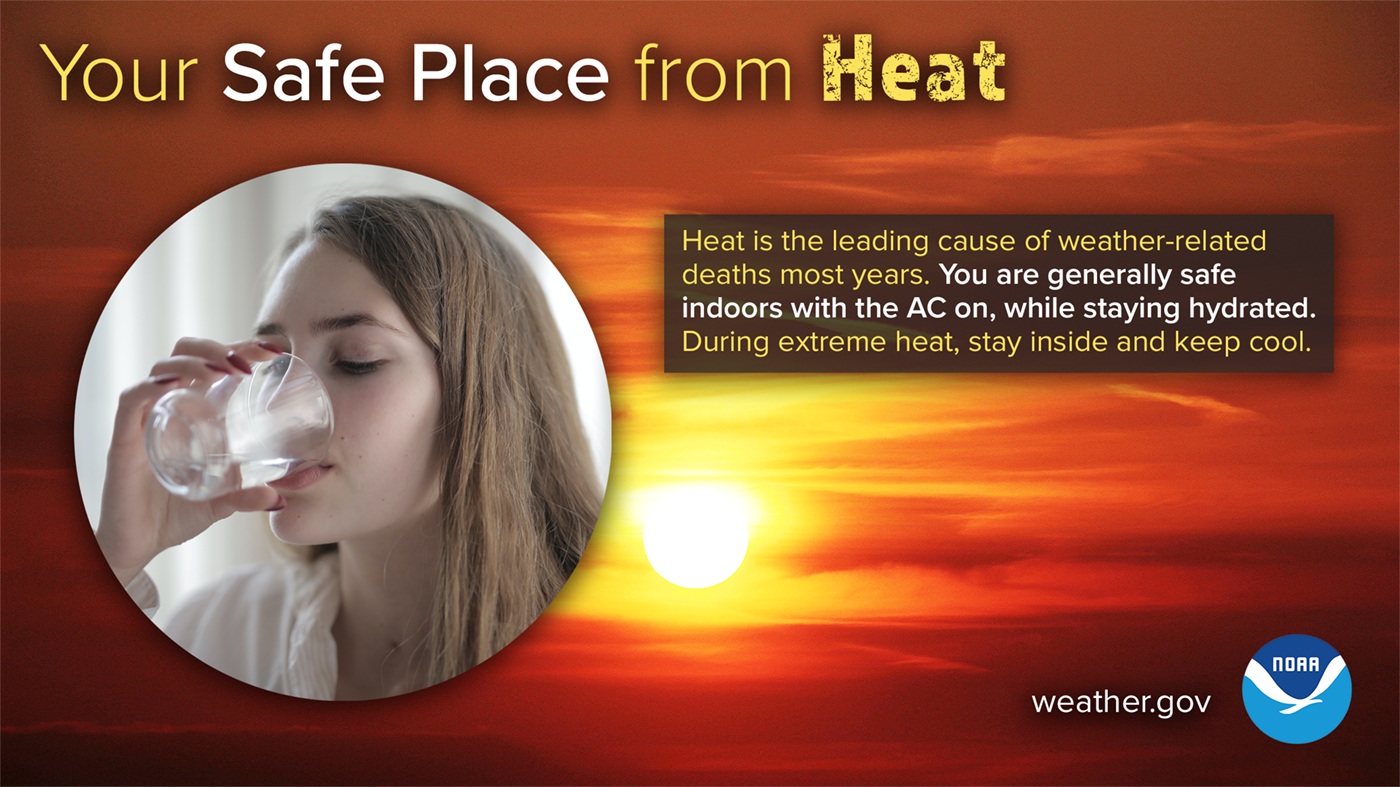
Heat Danger Beyond Heat Waves
Heat can be a deadly weather hazard, even outside of heat waves. In fact, most heat-related deaths occur during milder weather. Don’t let your guard down in typically cooler seasons such as the spring or fall. Stay Weather-Ready!
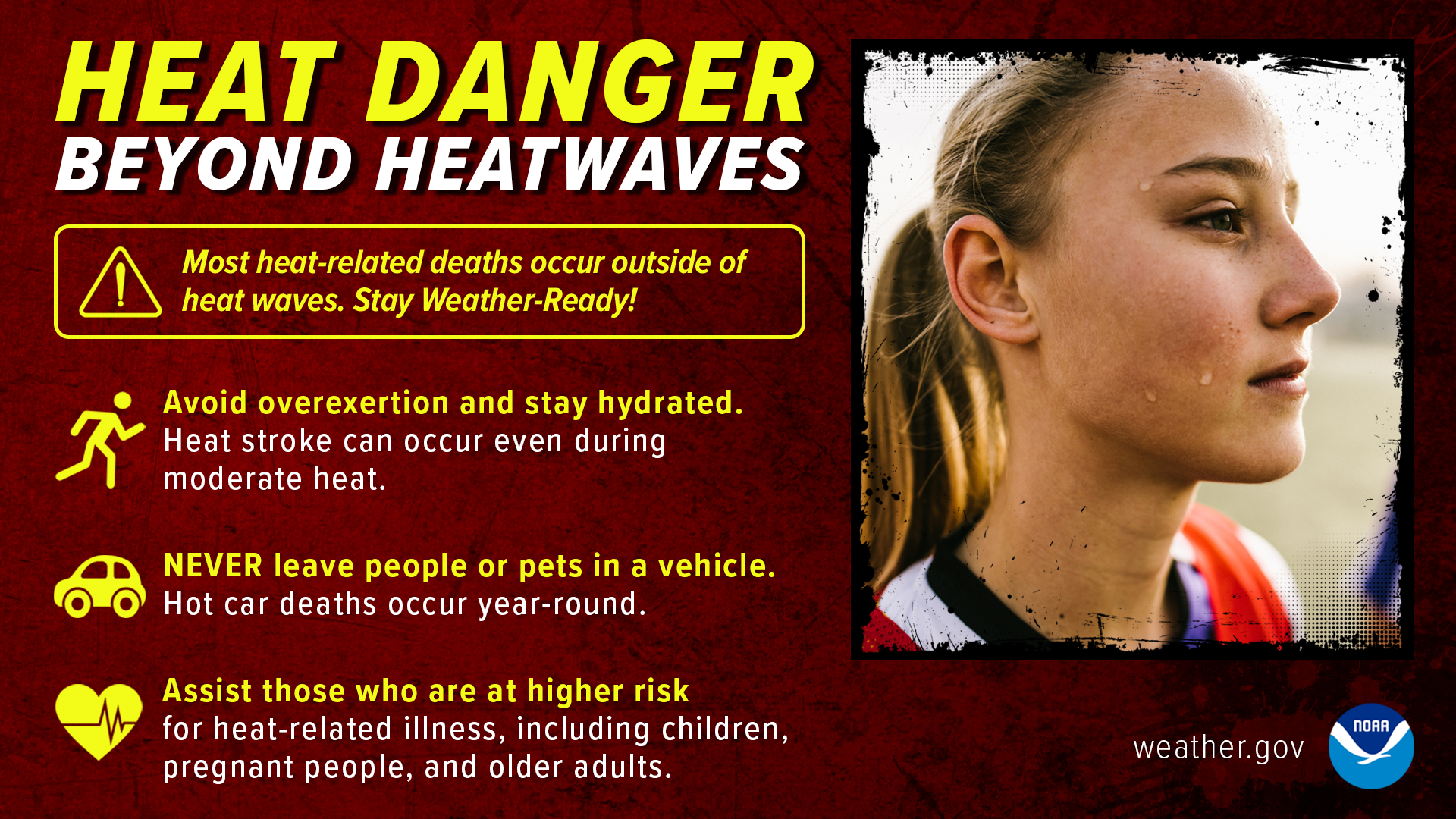
Heat Waves
Heat is the leading cause of weather-related fatalities each year. A heat wave is a period of abnormally hot and sometimes humid weather, generally lasting more than a couple of days. Heat waves have the potential to cover a large area, exposing a high number of people to a hazardous combination of heat and humidity, which can be very taxing on the body. During a heat wave, stay indoors in air conditioning.
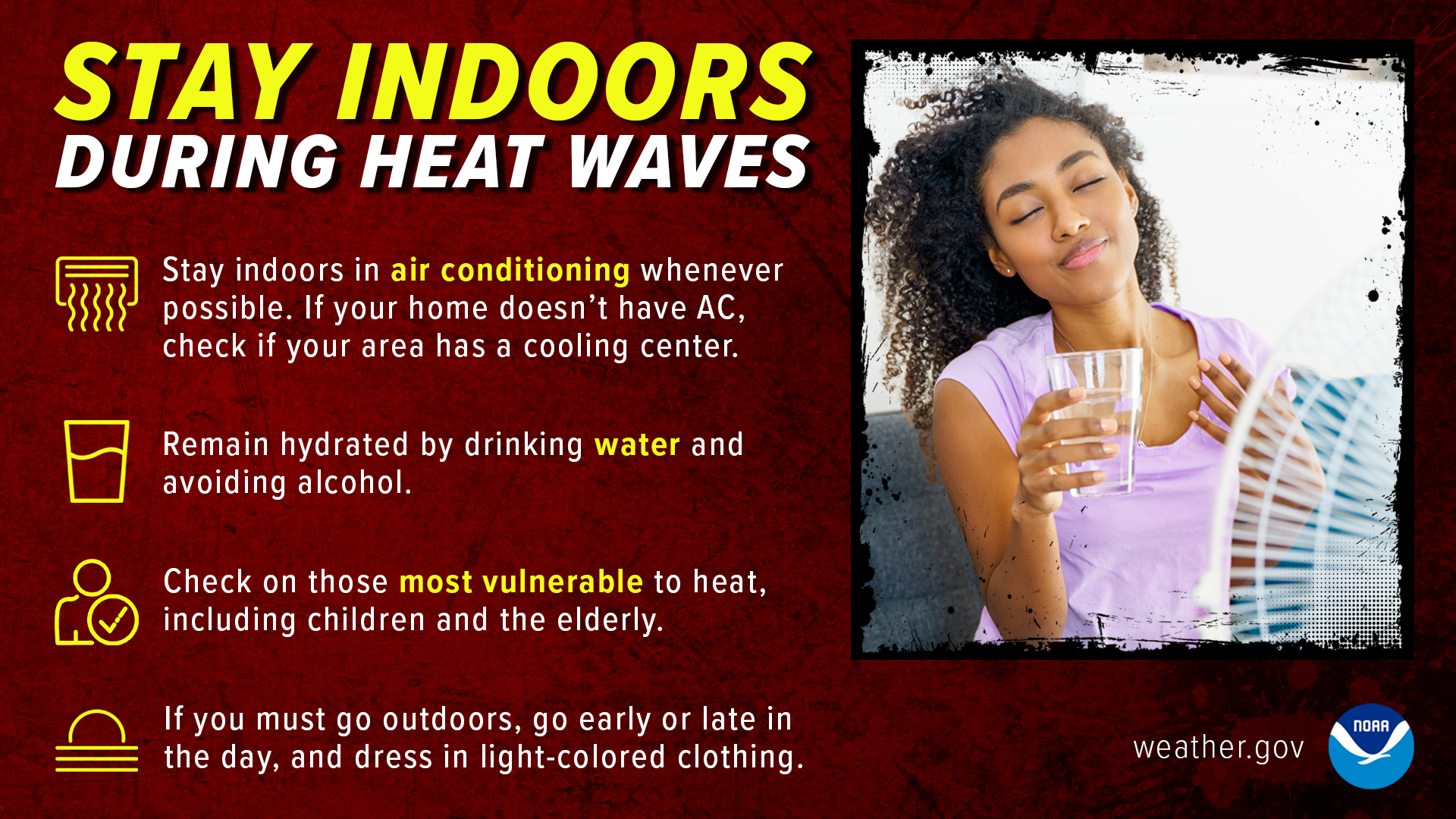
Protect Yourself Outdoors
When outdoors in the heat, wear lightweight, loose-fitting, and light-colored clothing to reflect heat and sunlight. If you will be spending time outdoors, hats are also a good idea to protect your face and scalp from harmful UV rays. Also, don’t forget to apply sunscreen liberally.
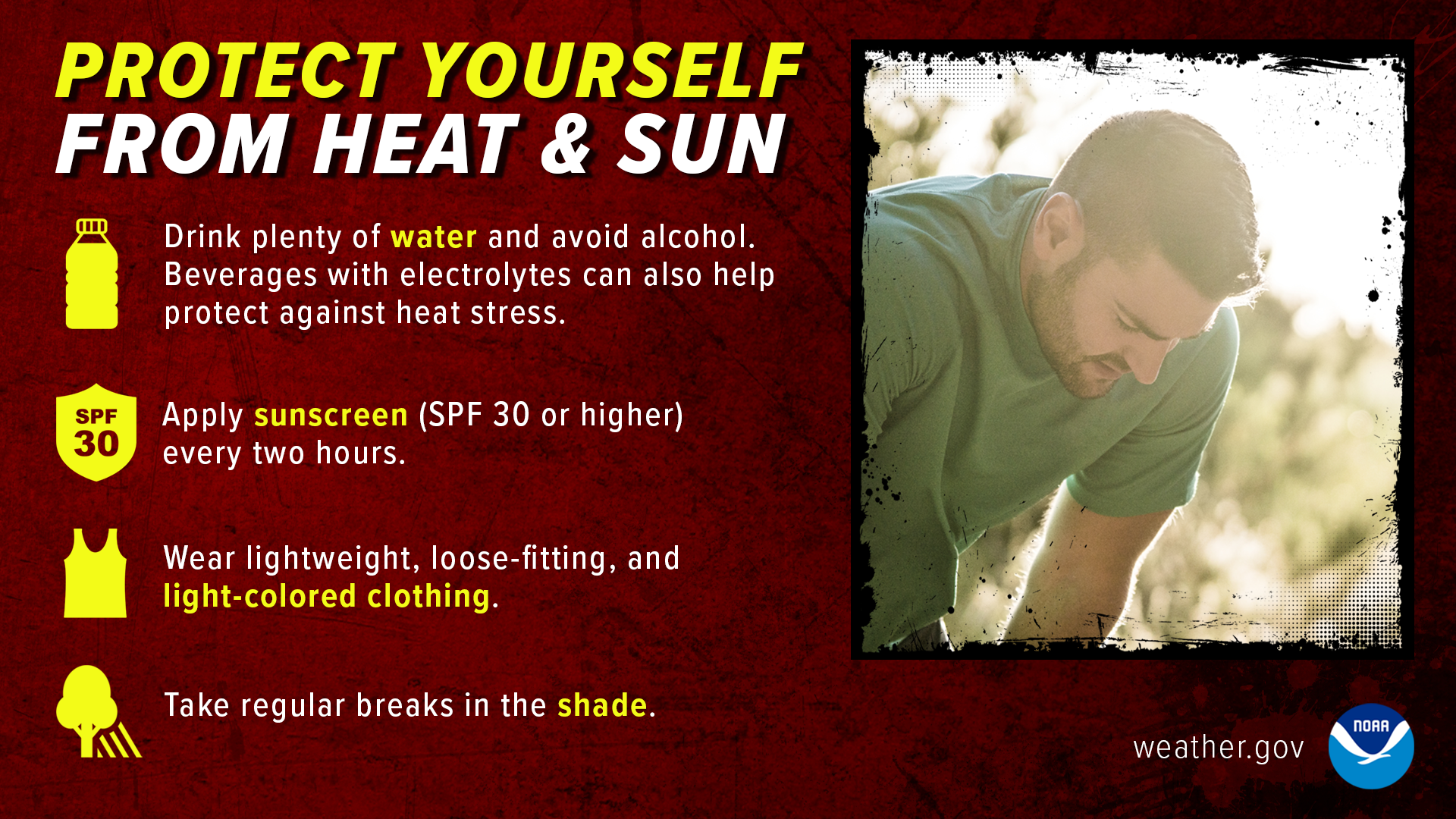
Sunburn Safety
Spending time in the sun on vacation this spring? Apply plenty of sunscreen! Also, keep in mind that heat-related illness is a possibility if you don’t take certain precautions. Find out more about heat-related illnesses and how to prevent them at weather.gov/safety/heat-illness
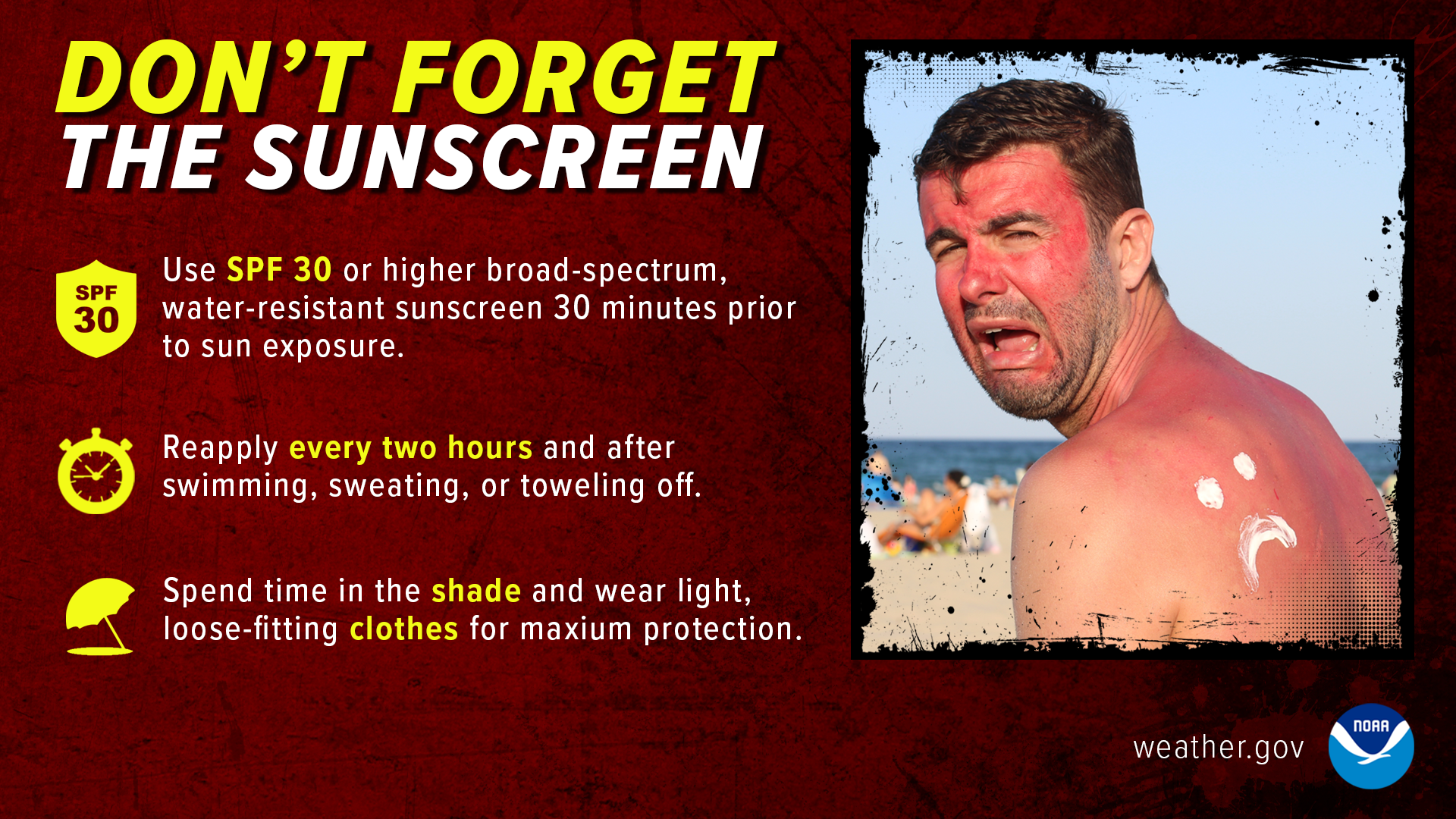
PVH: Year-Round
Children should NEVER be left in a car, no matter the time of year. Vehicular heatstroke has occurred when outside temperatures are below 70°F - sunlight can cause the inside of a car to heat up VERY quickly. Stay Weather-Ready.
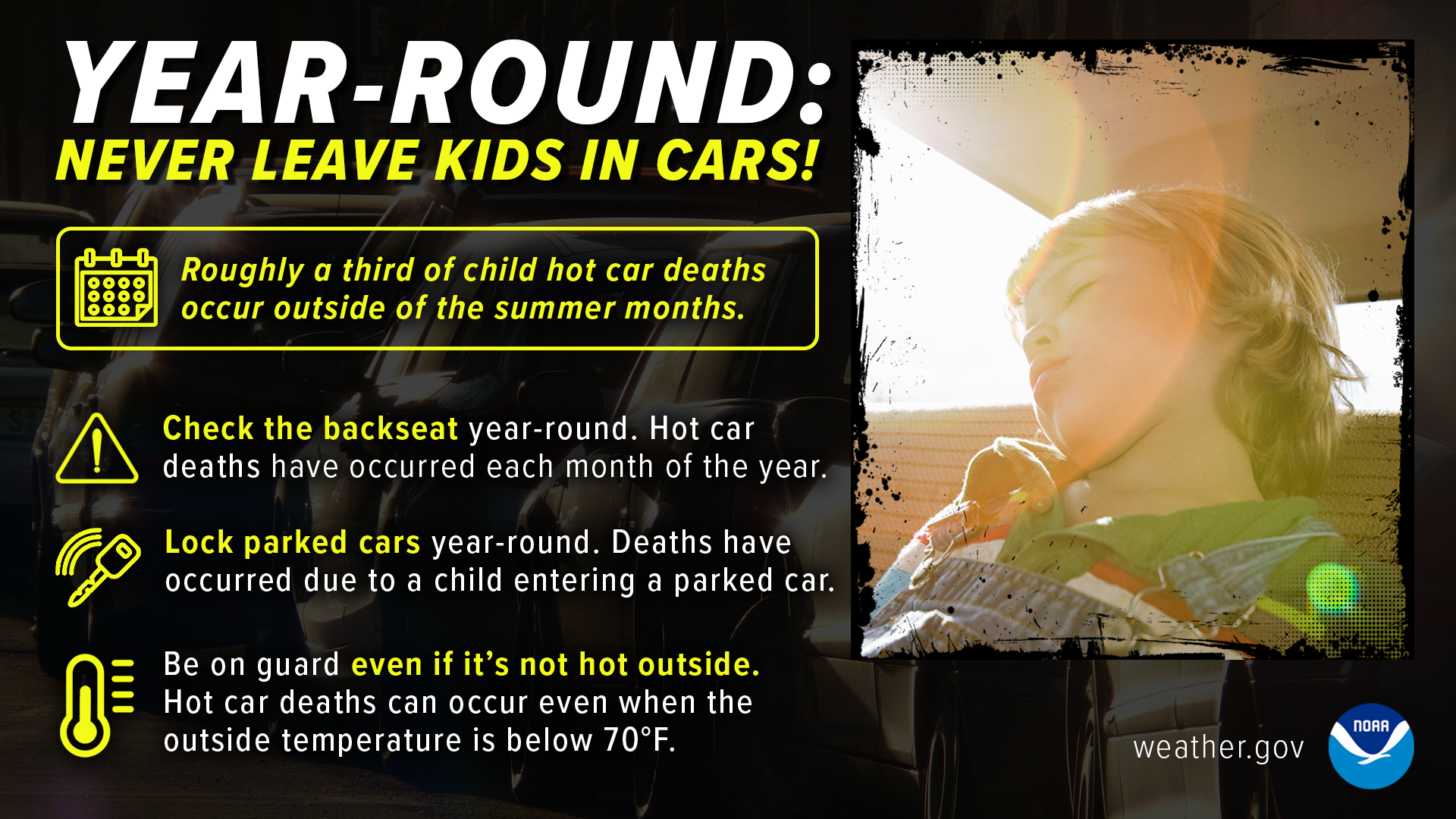
PVH: Strategies
Everyone operates on auto-pilot once in a while. Caregivers should have a strategy to ensure that no one is ever forgotten in a hot car. Always be Weather-Ready.
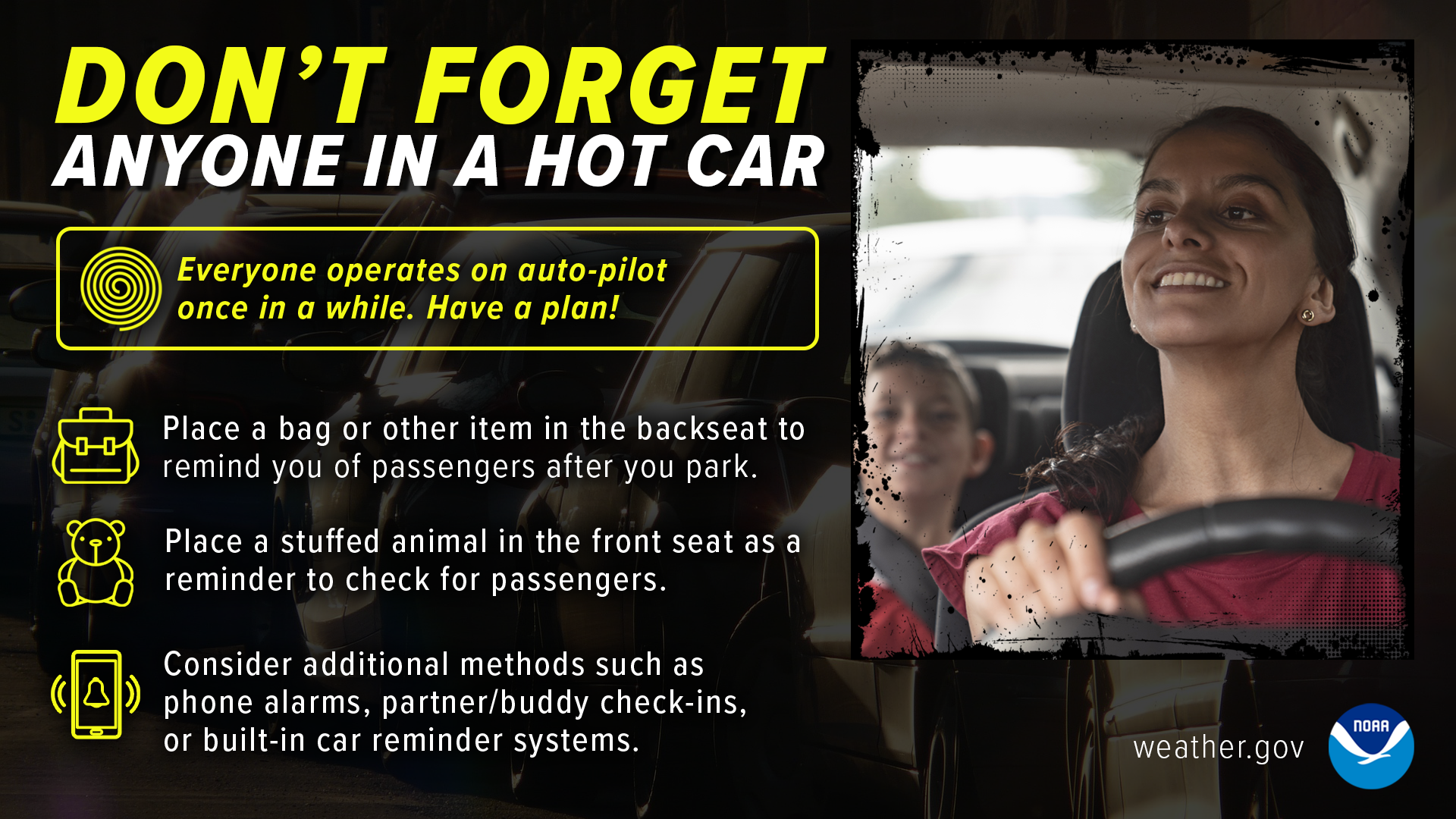
PVH: Always Lock Parked Cars
Over 900 children have died inside hot vehicles since 1998. Some of these tragedies were due to children accessing a parked car without supervision. Always lock parked cars, even if you are not a caregiver.
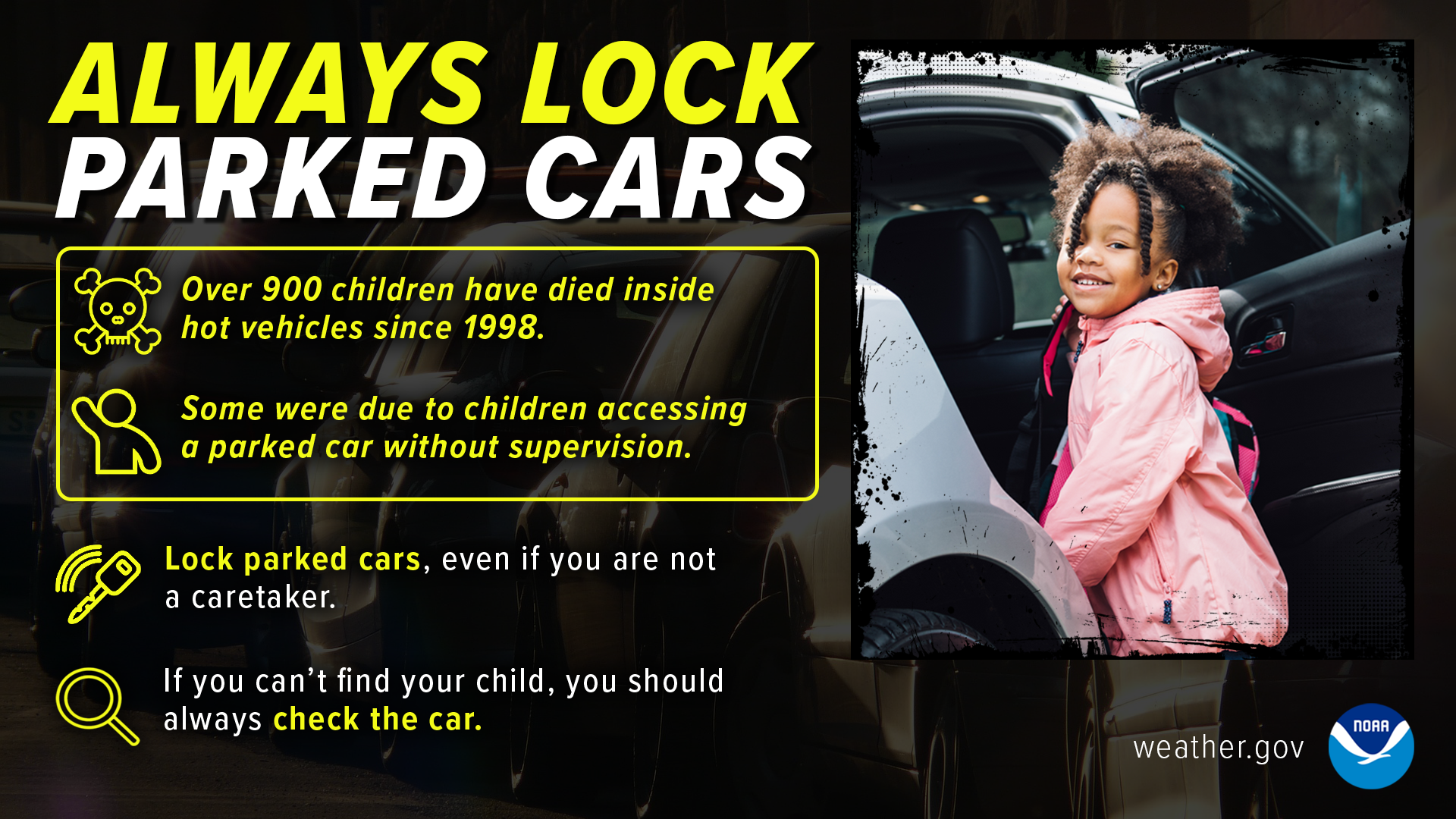
Heat Exhaustion or Heat Stroke?
During hot and humid weather, your body's ability to cool itself is challenged in ways you may not expect. When your body heats too rapidly, or when too much fluid or salt is lost through dehydration or sweating, you may experience a heat-related illness. Stay Weather-Ready by learning the symptoms of excessive heat exposure and the appropriate responses.
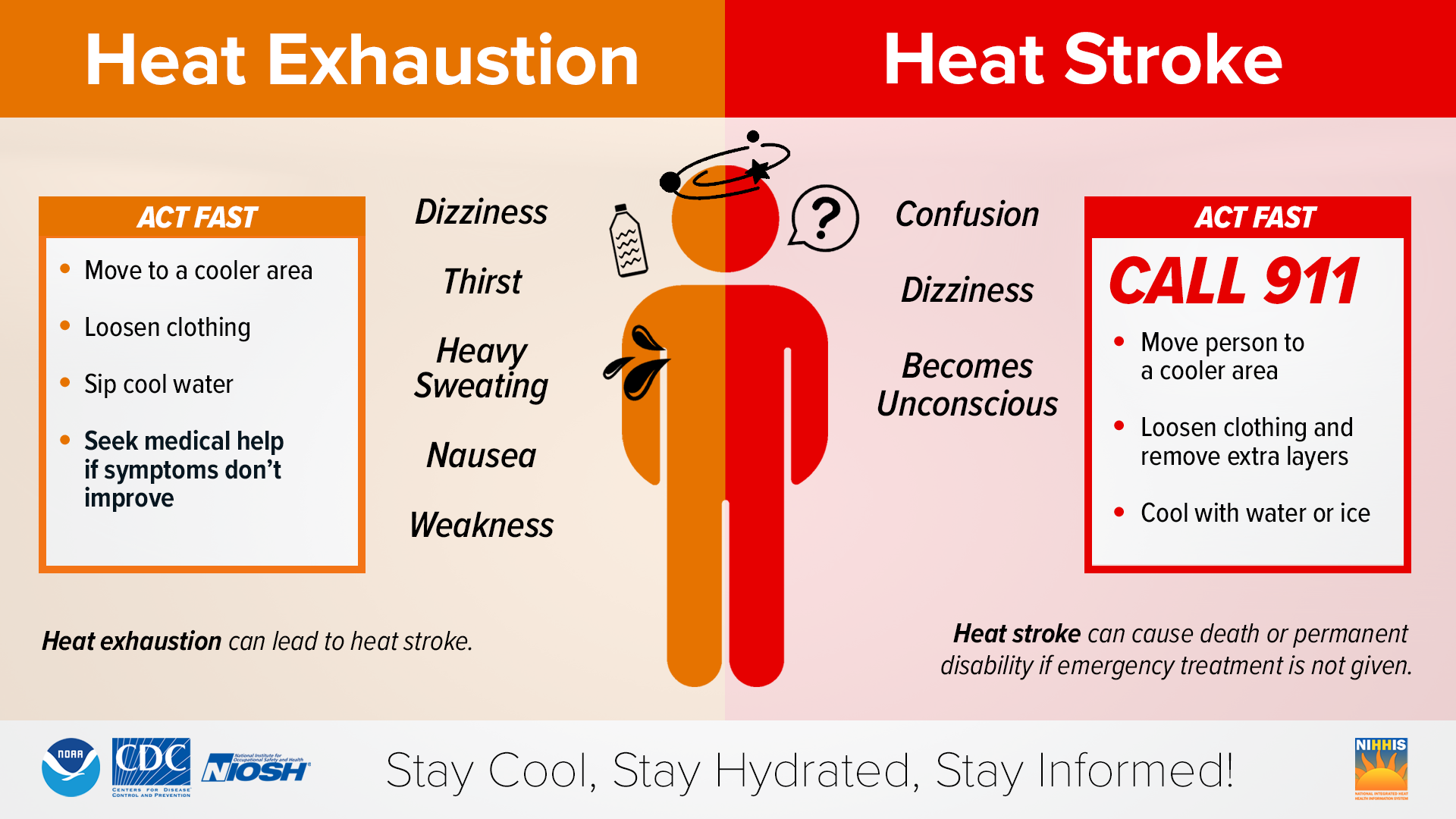
Heat Can Escalate Quickly
Warm temperatures can quickly rise to dangerous levels — especially in the summer and in parked cars. Stay Weather-Ready and don’t underestimate the heat.
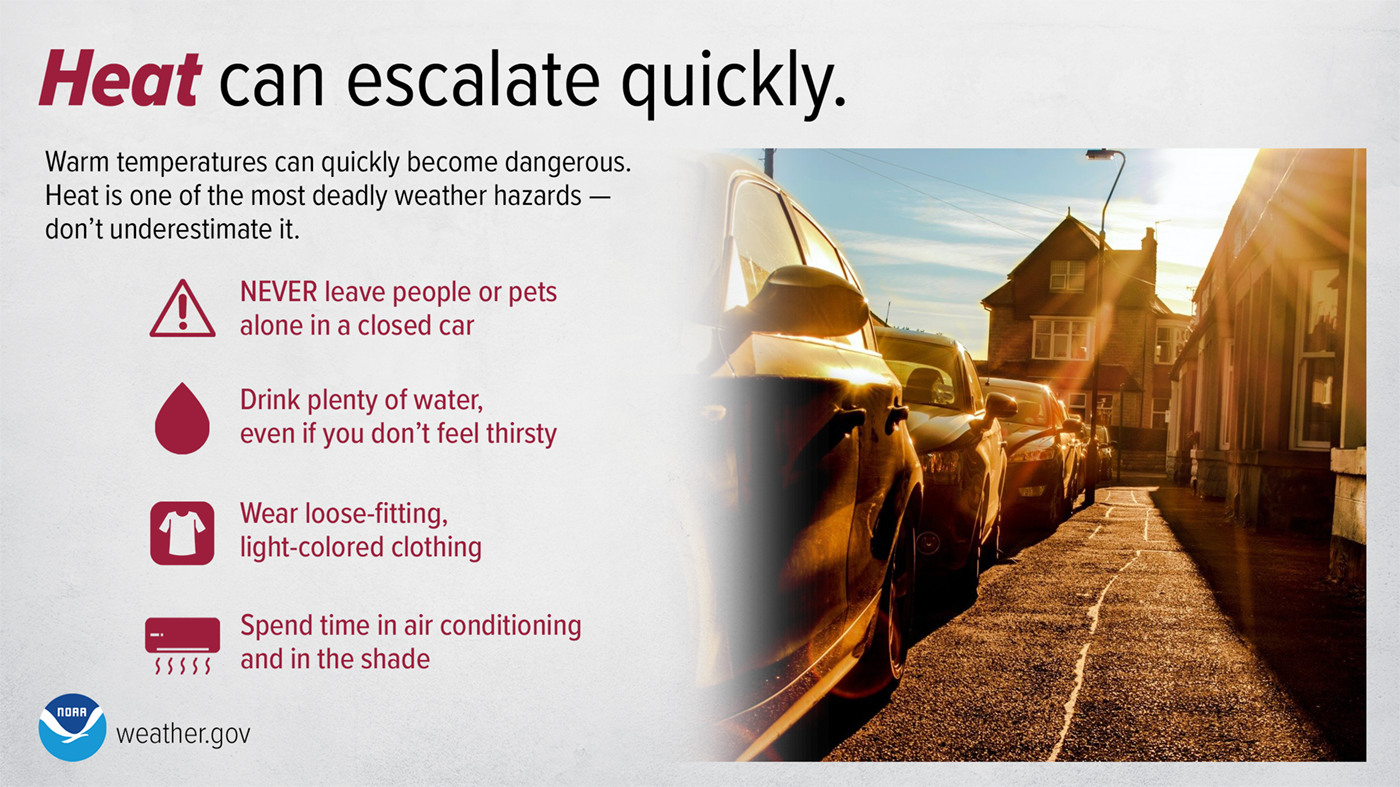
Vulnerable Populations
Everyone is at risk from the dangers of extreme heat, but these groups are more vulnerable than most. Ensure that your loved ones and neighbors are safe from the heat and remain Weather-Ready.
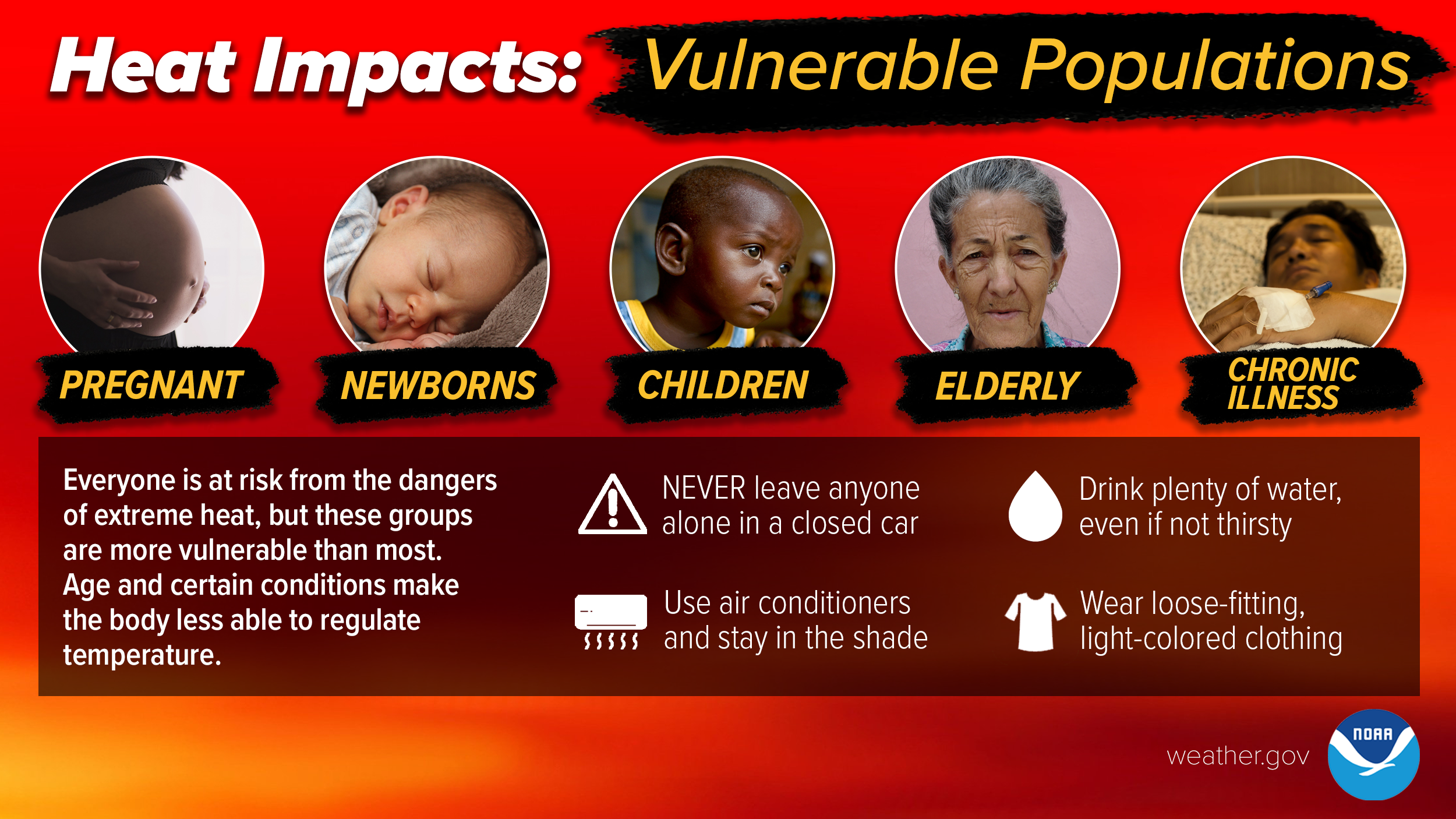
Heat Watch vs Warning
An Excessive Heat WATCH means Be Prepared. An Excessive Heat WARNING means Take Action!
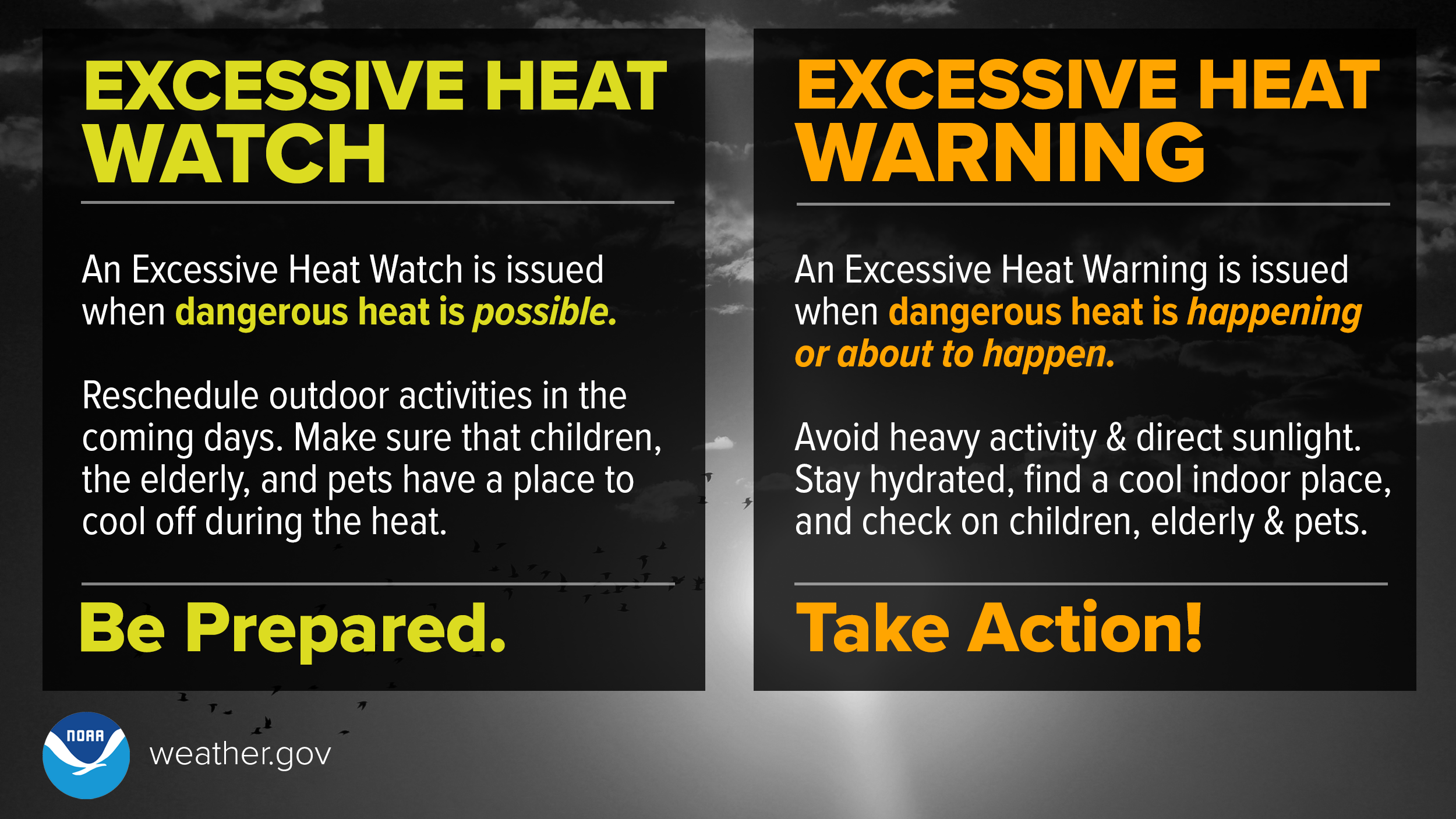
Heat Safety
Heat is typically the leading cause of weather-related fatalities each year. Heat waves have the potential to cover a large area, exposing a high number of people to a hazardous combination of heat and humidity, which can be very taxing on the body. Learn how to stay safe during a heat wave at weather.gov/heat
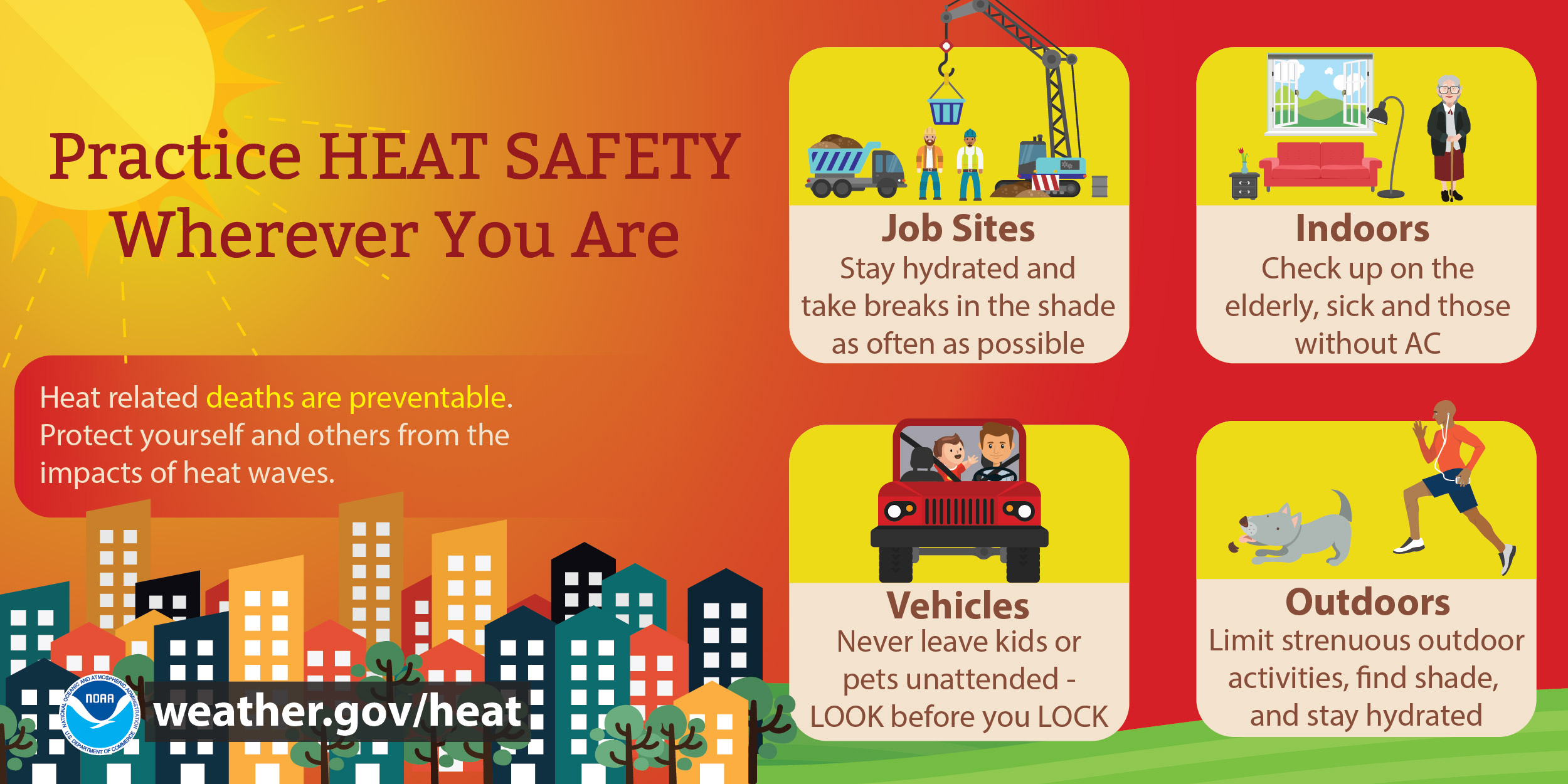
Auto Safety
Never, never, never leave children, disabled or elderly adults, or pets in parked, unattended vehicles! Studies have shown that the temperature inside a parked vehicle can rapidly rise to dangerous levels for people and pets. Leaving the windows slightly open does not significantly decrease the heating rate. The effects can be more severe on children because their bodies have not developed the ability to efficiently regulate internal temperature.
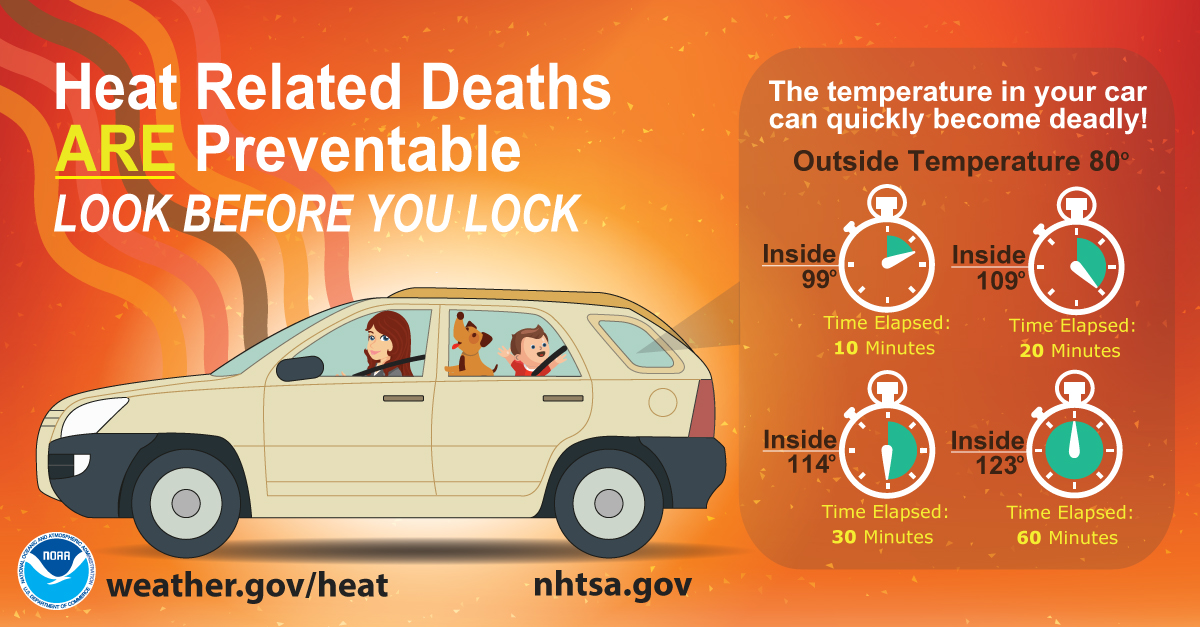
Helping Others: Extreme Heat
Children, the elderly, and those with chronic illness are especially vulnerable to heat exposure. NEVER leave anyone (or pets) alone in a locked car. Monitor people exercising or playing sports, ensuring frequent breaks. Bring water to outdoor activities with others to keep everyone hydrated. Learn the signs of heat-related illnesses at weather.gov/safety/heat-illness
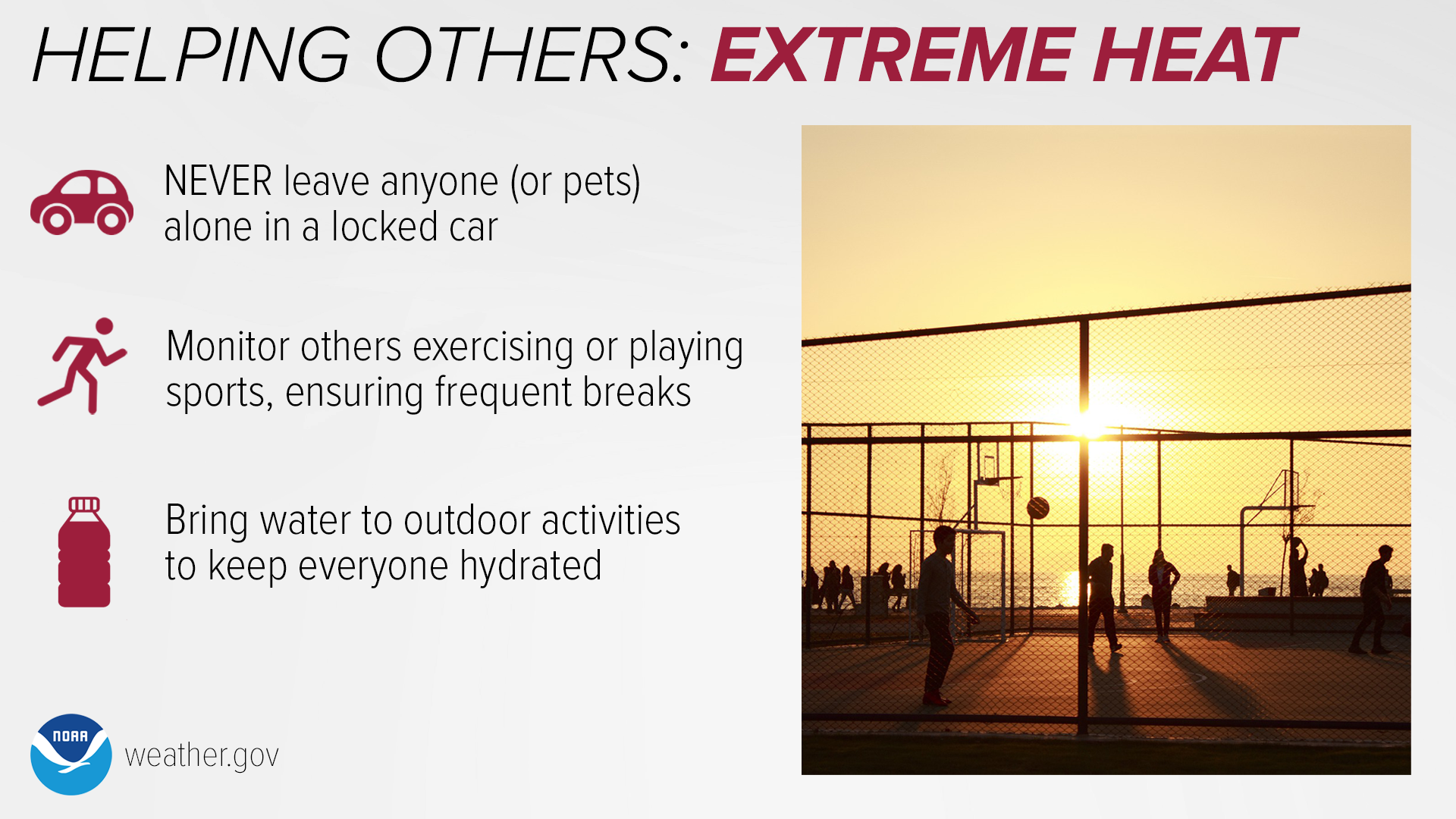
Your Safe Place from Heat
Heat is the leading cause of weather-related deaths most years. You are generally safe indoors with the AC on while staying hydrated. If you can’t easily get indoors, stay in the shade. Stay Weather-Ready and learn more about heat safety: weather.gov/safety/heat
